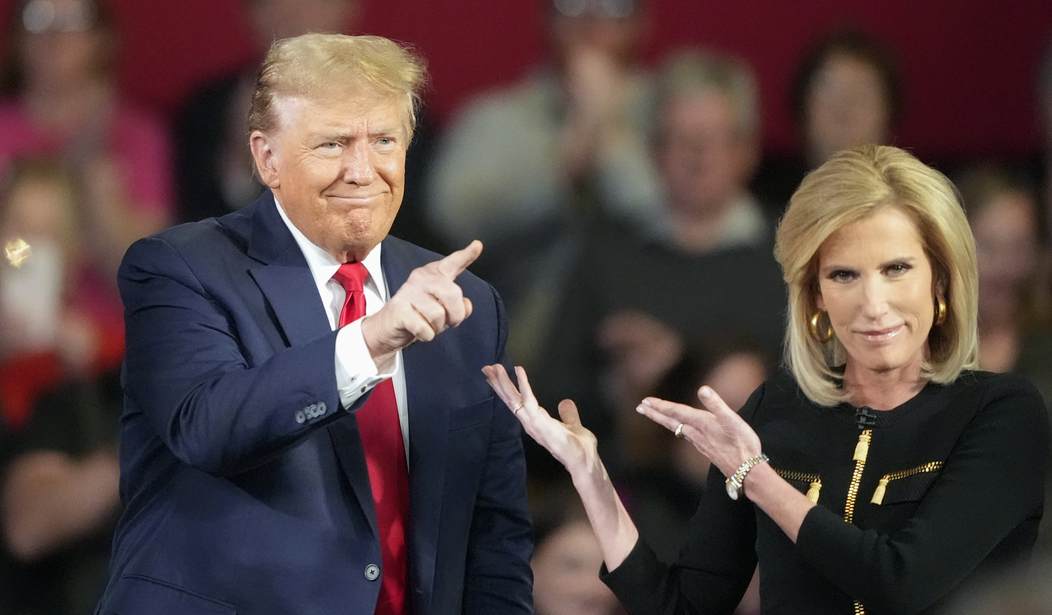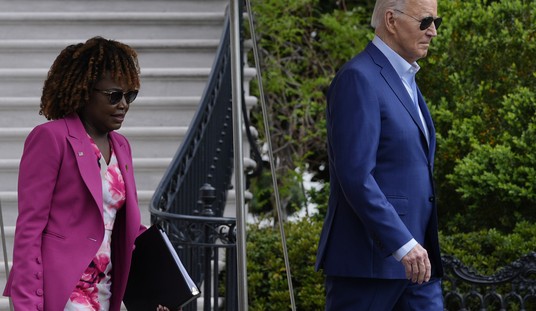Alternate headline: Help us, Obi-Wan Sotomayor, you're our only hope.
Two days ago, I wrote about the absurd and vindictive penalties in Judge Arthur Engoron's judgment against Donald Trump and its prima facie violation of the Eighth Amendment. It also unjustly blocks Trump from the normal appeals process unless he wants to destroy his business to pay for that right. New York state law incentives absurdly large awards from judges who prefer not to have higher courts reviewing their work, and a $455 million judgment for what the judge himself called "venial" sins and admittedly did no injury to anyone is such an exercise of naked power that it cannot be explained any other way.
However, as a couple of my correspondents explained shortly afterward, Trump can't do as I suggested, which is to file a lawsuit in federal district court over the Eighth Amendment violation. The only two paths are to follow the state appeals process -- and put up the ruinous bond -- or go directly to the Supreme Court for at least a stay, at least theoretically speaking. Or so Mark Steyn demanded immediately after the award as the only way to immediately address the injustice.
Mark Levin and others have suggested some sort of extraordinary demand for relief, both in his podcast and on Twitter yesterday, although it's not clear whether he's talking about the US Supreme Court. Levin wants Trump to go on offense on grounds of an ongoing violation of the Eighth Amendment, an argument which might persuade SCOTUS to intervene, and would put Engoron and Letitia James on defense regardless of venue:
FILE MOTION TO STAY IN NY PROPERTY CONFISCATION CASE: MORE ON THE 8TH AMENDMENT AND EXCESSIVE FINES
— Mark R. Levin (@marklevinshow) February 21, 2024
Accompany the motion with request for expedited discovery in aid of the motion and 8th amendment defense. All documents relating to any communications by Letitia James or her…
All documents relating to any communications by Letitia James or her agents or employees about the case or Trump or his companies with White House, with Bragg or his staff, with Willis or her staff, with Smith or his staff. And with Hochul or her staff, with the DNC, with any Democratic office holders and their staffs.
Seek production in 2 weeks. Followed by third party subpoenas and depositions. All to be completed in six weeks.
The enormity of the fine against President Trump and the use of a facially preposterous statute, never used in this way before, and the attorney general's own campaign statements as well as her most recent statements on her TV media tour, together create a prima face case of an 8th amendment violation against excessive fines and penalties. In 2019, the Supreme Court unanimously ruled that the 8th amendment applies to states through the 14th amendment.
This is a fundamental violation of the Constitution. (H/T Arthur Fergenson)
Indeed. But can anything be done about it? If the Supreme Court actually took up the case, the prospects would seem bright for Trump -- but that's a mighty big if. Levin cites Timbs v Indiana, a case decided almost exactly five years ago that reversed the confiscation of a $42,000 vehicle in a drug and theft case. In a unanimous ruling written by the late Justice Ruth Bader Ginsburg, the court emphasized that the Eighth Amendment was fully incorporated, and as such, its prohibitions on excessive fines and penalties applied to state and local governments.
Furthermore, and perhaps more applicable in Trump's case, Ginsburg took care to note the origins of the Eighth Amendment in the Magna Carta -- and why it emerged, emphasis mine:
The Excessive Fines Clause traces its venerable lineage back to at least 1215, when Magna Carta guaranteed that“[a] Free-man shall not be amerced for a small fault, but after the manner of the fault; and for a great fault after the greatness thereof, saving to him his contenement . . . .”§20, 9 Hen. III, ch. 14, in 1 Eng. Stat. at Large 5 (1225).2As relevant here, Magna Carta required that economic sanctions “be proportioned to the wrong” and “not be so large as to deprive [an offender] of his livelihood.” Browning Ferris, 492 U. S., at 271. See also 4 W. Blackstone, Commentaries on the Laws of England 372 (1769) (“[N]oman shall have a larger amercement imposed upon him, than his circumstances or personal estate will bear . . . .”).But cf. Bajakajian, 524 U. S., at 340, n. 15 (taking no position on the question whether a person’s income and wealth are relevant considerations in judging the excessiveness of a fine).
Despite Magna Carta, imposition of excessive fines persisted. The 17th century Stuart kings, in particular, were criticized for using large fines to raise revenue, harass their political foes, and indefinitely detain those unable to pay.
And Ginsburg returned to the same threat a few paragraphs later, emphasis again mine:
For good reason, the protection against excessive fines has been a constant shield throughout Anglo-American history: Exorbitant tolls undermine other constitutional liberties. Excessive fines can be used, for example, to retaliate against or chill the speech of political enemies, as the Stuarts’ critics learned several centuries ago.
That passage seems almost prophetic in this case. Letitia James ran for office on a promise to "get Trump," and Judge Engoron entered this case making derogatory remarks about Trump. Governor Kathy Hochul had to reassure business owners in New York that they would only target Trump for such treatment, which lends more weight to Trump's claims of selective prosecution and political targeting. The sheer magnitude of the fines in a civil case where no one lost a dime makes this look very much like the kind of politicized use of government authority Ginsburg warned about in Timbs. (Clarence Thomas' concurrence-in-part offers even more detail on similar cases in history and the reasons why the Eighth Amendment was necessary to win ratification.)
Given the recent ruling on Timbs and its unanimity, the Supreme Court must be champing at the bit to tackle Trump v James, yes? Er ... doubtful. Normally the Supreme Court wouldn't intervene at all until all of the state appellate courts have a chance to review the case. (The NY appellate courts can tackle the Eighth Amendment issue, too.) Also, as Andrew McCarthy wrote yesterday, the case isn't as cut and dried as some might think. Trump has a winning argument on the Eighth Amendment aspect, but on the merits of the case not so much:
To my mind, it is unlikely that Trump’s appeal will result in a clean win for either side. That is, I could easily see the disgorgement penalty being substantially slashed. Yet that does not necessarily mean an appellate court is going to reverse the underlying findings that Trump and his underlings grossly exaggerated asset values in contexts where they were obliged to provide good faith estimates — even if their counterparties were sophisticated financial actors who were sure to do their own due diligence.
Those findings are conclusions of fact. Even though this was a bench trial before a judge whose hostility to Trump was unconcealed (as was Trump’s contempt for the tribunal), appellate courts are loath to disturb factual conclusions by the trial judge who heard the witness testimony and other evidence. (Appellate courts are much more likely to reverse a trial judge’s conclusions of law.)
If the entire case were unjust, the Supreme Court might be tempted to intervene immediately. But if the issues are murky, that would further incentivize SCOTUS justices to wait for due process to play out fully first, which they tend to do anyway as a default. The main argument against the merits is that New York has never applied this law in this particular manner, an argument that doesn't lend itself well to federal-court review. And given that Justice Sonia Sotomayor covers the circuit that includes New York, that tendency might be even stronger.
Nevertheless, the case clearly violates the Eighth Amendment in exactly the manner foreseen by Ginsburg in Timbs. That might make a demurral more difficult to explain away, but it may also help Trump's team get a concession from the state appellate court to grant a stay on the judgment to allow for access to an appeal immediately. That would be the path of least resistance for both sides -- and the quicker way to end what should be an embarrassing and unconstitutional abuse of power by the state of New York.








Join the conversation as a VIP Member